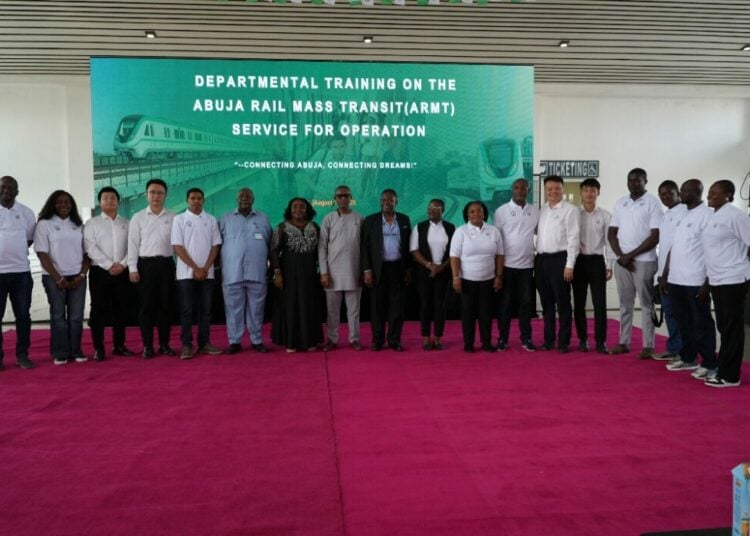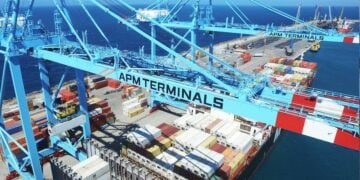The Abuja Rail Mass Transit (ARMT) system has transported about 4 million passengers within its first full year of uninterrupted operation. Officials disclosed on Tuesday at a ceremony welcoming home the first batch of Nigerians who underwent three months of specialised training in China.
Figures released at the event showed that between May 30, 2024, and July 30, 2025, the metro system moved about 3.9 million commuters, while broader estimates put the total ridership since inception at over four million passengers. The milestone highlights the growing reliance on the capital’s metro service as a safe, green and efficient commuting option.
Deputy general manager, rail operations department of China Civil Engineering Construction Company (CCECC), Zhuang YanHui, said the passenger numbers were evidence that the ARMT had become “the preferred choice” for many Abuja residents since operations began in May 2024.
“The Abuja rail system has now achieved over 450 days of stable and reliable service,” he said. “Together, the over four million passengers carried so far have significantly enhanced the capital’s transport infrastructure and reduced peak-hour pressures.”
Zhuang praised the Nigerian trainees who recently concluded their foreign programme, describing their performance as disciplined and impressive. He added that the commencement of a local training phase in Abuja would ensure sustainable knowledge transfer and deeper Nigerian ownership of the metro.
Chief of Staff to the FCT Minister, Chidi Amadi, urged the graduates to put their new skills to work in order to strengthen commercial rail operations and sustain ridership growth. “The journey has started again. Don’t waste what you have learnt. We are going to build ourselves,” Amadi said.
Permanent Secretary of FCTA Transportation Secretariat, Mrs. Okonkwo Florence Nornubari, said the steadily rising number of metro passengers would, in the long run, reduce reliance on private cars.
“Very soon, FCT roads will begin to have very few cars because many people are going to be using the rail system,” she declared.
Director of the department of transport, Akinteye Joseph Olatunde, explained that the ridership success was closely tied to the operational structure and training programme. He said the first batch of 15 participants completed 90 days of intensive training in China, while a second batch is currently undergoing the same.
According to him, the training and operations are being implemented under a tripartite services contract involving the FCTA as client, CCECC Nigeria Limited as service provider, and an operator responsible for the Special Purpose Vehicle (SPV). This arrangement, he noted, was designed to facilitate knowledge transfer and ensure that the FCTA will assume total control of the ARMT system at the end of the contract period.
Olatunde emphasised that during the Abuja-based training, the returnees would demonstrate their skills to colleagues, thereby multiplying the impact of the international programme.
On behalf of her colleagues, trainee representative Ayo Regina Akomolafe expressed gratitude to the FCTA and CCECC for the opportunity. “The training has enriched our knowledge and skills in modern railway operation. We will put the knowledge acquired into practice for the FCT and the country,” she said.
Officials stressed that beyond the symbolic passenger figures, the ultimate goal of the current phase is to entrench Nigerian expertise in metro operations, ensuring the system’s sustainability.
With nearly four million passengers carried in just over one year, the ARMT has not only eased congestion on Abuja’s roads but also positioned itself as a critical pillar in the capital’s public transport revolution.











